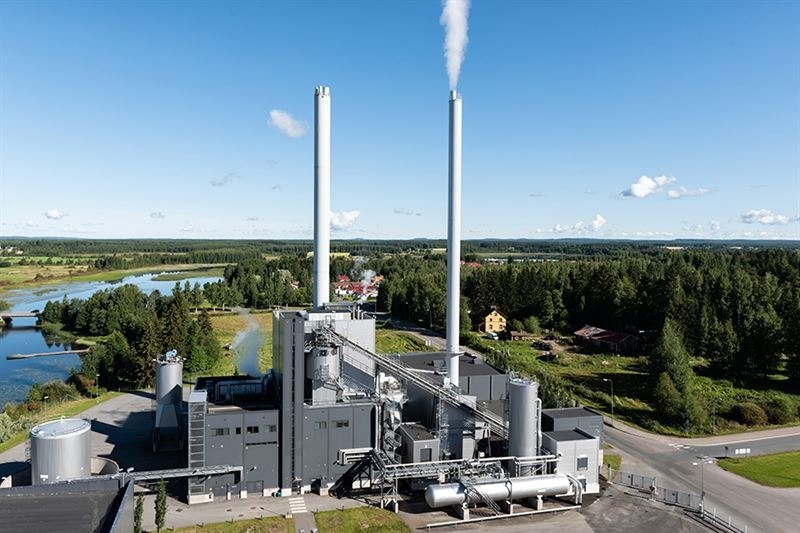The biggest energy-efficiency investment in Valio’s history has been completed at Valio’s Lapinlahti factory in the North Savo region of Finland. The new flue-gas condenser captures heat from the factory’s chimney and simultaneously scrubs it to make it cleaner. The factory’s energy consumption will decrease by more than 10 percent and its greenhouse gas emissions by about 10,000 CO2 tons per year, i.e. an amount equivalent to the annual emissions of some 4,900 passenger cars.

Image Credit: Valio/Markku Lempinen
The Lapinlahti factory has the biggest total energy consumption of all Valio’s factories. The factory needs heat energy for two production processes in particular: drying milk powders and cooking cheese. The factory’s heat energy consumption can be decreased by as much as 25,000 MWh per year.
“We produce the heat energy needed by our factory primarily using biofuel in a heat plant located on site. Hot flue-gas is generated in conjunction with heat production. Previously, the heat energy contained in the approx. 150 °C flue gas went to waste, but now the flue-gas condenser captures the thermal energy. Water sprayed into the flue gas absorbs the thermal energy of the flue gas. This combined with the heat pump technology results in 80 °C hot water, which we utilise in production and in facility heating. We store the rest of the hot water in the new heat accumulator system. This gives us access to thermal energy when we need it the most,” says Energy Manager Peter Fabritius from Valio.
In addition to the energy savings, the system supports heat production especially during periods of peak consumption and reduces the use of light fuel oil-fired auxiliary boilers. It also lowers the factory’s energy bill.
“Valio’s target is to cut milk’s carbon footprint to zero by 2035. We have implemented a lot of energy-efficiency measures over the years. However, as a single measure, this is the most effective and tangible demonstration of the food industry’s sustainability work. The timing is right, as energy savings are needed now more than ever. Energy availability is a security of supply issue. Food factories must have continuous access to electricity in order to secure the Finnish food supply,” Fabritius concludes.
Valio’s investment includes a flue-gas condenser, a heat pump system, a heat accumulator and an extension to the factory’s heat distribution network. Our partner Adven Oy, a provider of energy and water services, is responsible for operation and maintenance of the system.
*Traficom: The average CO2 emissions from passenger cars on the road in 2021 was 147 g/km. Average kilometres driven ca. 14,000 km/a.